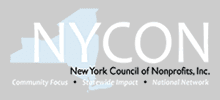Charitable nonprofits:
A little take, a lot of give
» RELATED CONTENT
Amanda Fries
Keshia Clukey
Posted Jan. 26, 2014 @ 3:52 pm
Keshia Clukey
Posted Jan. 26, 2014 @ 3:52 pm
Last week, on the second floor of 420 E. German St., Billy Gifford worked in a small group preparing boxes of tissues to be packaged.
Gifford is one of about 600 people that benefit daily from Herkimer ARC programs, not to mention the 400 people employed with the nonprofit.
"They provide me safety and they give me work to do," said the 21-year-old West Winfield resident. "They teach me new stuff every day, and I learn a lot."
There's no dispute that nonprofit organizations help the community through programs, grants and job creation as employers. But when it comes to tax-exempt properties, charitable nonprofits often become the scapegoat.
The ARC owns 35 tax-exempt buildings in Herkimer County, ranging from housing facilities to manufacturing operations. The East German Street building is partially exempt because it houses other businesses.
"We're providing work opportunities for people in an integrated setting for people with and without disabilities," ARC President and CEO Kevin Crosley.
And without the tax exemption, the organization would be "in a very serious financial crisis, Crosley said.
"The importance of the tax status is such that it keeps our business alive and allows us to provide services," Crosley said. "Not-for-profit is a tax status, it's not a business strategy."
Charitable nonprofits raise property values, increase the quality of life and generally take up 5 to 10 percent of a tax base, a relatively small amount, said David Thompson, National Council of Nonprofits vice president of public policy.
They also often are contracted to provide services the government cannot.
"Our strong view is that cities do better because of nonprofits, not despite nonprofits," Thompson said. "In many ways we reduce the burden on the government."
And as financial times get difficult, the need for charitable nonprofits rises, and they become vital in helping the community make ends meet.
The Community Foundation of Herkimer and Oneida Counties employs 10 people and in 2013 the nonprofit distributed 494 grants totaling nearly $4 million to the community in the areas such as economic development, enhancing education and improving quality of life.
Set to move to a new location, the Community Foundation soon will be operating out of 2608 Genesee Street, a building assessed at $350,000, according to the city Assessor's Office. It will be exempt.
"It's a very narrow mantra that nonprofits don't pay taxes, therefore, that's a negative," said Peggy O'Shea, president and CEO of the Community Foundation. "I think that's really missing the point of what nonprofits provide to a community. We see our role as the organization to bring people together to have that civic discourse and dialogue to decide what's best for our community."
Follow @OD_Clukey and @OD_Fries on Twitter or call the newsroom at 792-5017
Read more: http://www.uticaod.com/article/20140126/NEWS/140129466#ixzz2s8Ww0qp0
































